Joanna Marshall is 2IC and lead educator in an early learning setting in Brisbane, who recently wrote a post titled Childcare not child’s play. Joanna shared her views on the challenges of her role as an educator and her post has since gone viral, being shared through numerous Early Learning Facebook groups. It has also been distributed by other media outlets including the Huffington Post on 12 December 2016 re-titled “This is what happens after you drop your child at daycare”,the Sydney Morning Herald and The Age on the same date re-titled “We’re overworked, overlooked and grossly grossly underpaid”.
There are many educators who feel this is an accurate account of the pressures they experience daily and stand with Joanna in calling for greater understanding and valuing of the work they undertake. Many education and care practitioners (educators and early childhood teachers) acknowledge the courage of Joanna to speak out so honestly about her own experiences, reflecting on her physical, emotional and financial commitment to her role and the love she expresses for the children in her care.
Generating concern is the apparent lack of professionalism displayed through the less than positive portrayal of children and families in the article. Also of great concern by more experienced education and care practitioners, is the absence of any awareness of the toxic environment and practices this scenario exposes those precious young children to.
Most practitioners would have preferred to see a more positive account of the challenges and pressures of the role as the workforce predominantly connect with the underlying message of feeling overwhelmed, overworked, unsupported and underpaid with a 3 yr QUT National EC workforce study finding that for many, these costs included:
‘financial hardship; less favourable working conditions, including long and sometimes unpaid work hours; challenging work contexts causing stress and impacting on educator’s mental health and general wellbeing; and a public image that fails to acknowledge the professional and educational nature of the work and thereby devalues those who choose to work in this sector. devalues those who choose to work in this sector.’
Joanna was endeavouring to broadly share the understanding that while care is a primary component of the work undertaken with children, it is only part of the picture as education and care practitioners (ECP’s) also plan for and implement a comprehensive early learning program.
Education and care practitioners (ECP’s) ARE undervalued.
ECP’s are undervalued. They are seen by community and other professionals as babysitters and are perceived to do unskilled work. After all, they are only looking after children right?!
This statement could not be further from the truth. Our ECP’s are at the forefront of early learning, planning for and implementing early education and care programs that provide the foundation of future learning for children. Our ECP’s are also on hand to inform and support new parents who are often seeking input and reassurance from professionals about age appropriate learning and development. Their knowledge and skill is key to supporting children’s development and to making early referrals which can support early intervention and improve outcomes for children through an early diagnosis or intervention support and planning.
A secure relationship is foundational for learning to occur and while care and education may be controversial in their alignment (Cheesman and Torr, 2009)they go hand in hand and the devaluing of learning in an education and care environment needs to be addressed.
The perception that ECP’s are only caring for children undermines the professional role of ECP’s.
Education and Care practitioners are required to hold or be working toward a minimum Certificate III qualification in Education and Care to a four-year university degree or higher. 50% of ECP’s in each service must hold or be working toward a Diploma in Education and Care. Did you know that the Diploma in Early Childhood Education and Care is the largest Diploma qualification in the vocational education and training system?
Each service will also employ a Degree Qualified Early Childhood Teacher, ECP’s are also expected to maintain current training in first aid, Asthma, Anaphylaxis, child protection and food handling. They adhere to a Code of Ethics and a national professional standards for Teachers, with many also attending regular professional development opportunities in their own time and at their own expense.
Education and Care practitioners (ECP’s) are qualified professionals whose skills, knowledge and practice wisdom are ideally placed to deliver quality early learning environments for children.
What is indisputable is the overwhelming evidence that the future health and wellbeing of children and the nation is entwined with the qualifications, expertise, skill and knowledge of education and care professionals (Fewster and Carter, 2011).
This article highlights the current crisis the profession is experiencing. The broad range of perspectives expressed by Joanna and many ECP’s are representative of the breadth of knowledge, skills and experience of individual practitioners working in the profession. Two thirds of the current workforce have been in their role for less than three years; the profession is losing around 180 practitioners a week and a further one in five plan to leave the profession in the next 12 months.
Less than 10% of the current Education and Care Workforce have the length of service that contributes to the practice wisdom, essential knowledge and expertise required to support emerging leaders in the field and around 20% have five or more years practice experience needed to deliver the high quality early learning programs our children need and deserve.
The undervaluing of the profession is feeding into the attitudes and performance of many working in the field. It influences school leavers and job seekers considering a career in education and care and it influences employers and their expectations of the workforce.
The pressures to meet the individual needs of each child in care are very real. It is an extremely demanding role to be available to meet the emotional and developmental needs of our youngest citizens. Added to this are the expectations to comply with the many other demands of this highly complex role.
If we are to provide quality early learning environments for children that support children to reach their full potential, we need to first recognise and value the work undertaken by our education and care professionals.
Only when our education and care practitioners feel valued and supported will we be able to curb the attrition rates in the profession and begin to grow a highly skilled, qualified and sustainable workforce.
The regulations and National Quality Standard alone cannot deliver these outcomes as it is the ECP’s who are ultimately expected to comply with the regulations and to deliver the programs and practices under the NQS. Of the 15,417 children’s service’s nationally that have been assessed and rated under the NQS, 3618 (29%) are not meeting the minimum national quality standard and 13 services have a rating of significant improvement required. This isn’t news to you; the media often focuses on this aspect of our profession. As professionals though, we will be able to see through the shock and awe, reflect on the bigger picture and work collectively toward improving outcomes for our profession and ultimately for children and families.
What really concerns me is this. Epstein (1993) found that “poor quality programs will be detrimental to the development of any child at any age and represents missed opportunities”. What this translates to in our context is that based on these A&R results, children in over 3600 children’s services nationally are enrolled in programs detrimental to their development. With a further 30% of services yet to be assessed and rated, this result could actually be higher.
These environments are also detrimental to the health and well being of the EC workforce who under this level of stress will become a statistic and leave the profession. Recognizing that the bulk of the current workforce have limited practical application of their knowledge and without access to a more experience professional are likely to in the words of Lillian Katz be operating in survival mode, whereby they are reactive and spend their day putting out spot fires. This level of stress impacts on ECP’s ability to implement quality programs to be reflective or to be intentional in their teaching, they are simply operating to get their own needs met which means they are operating just to get through their day.
What I do believe is that ECP’s who are committed to their own ongoing personal and professional development will grow in skills and confidence and be better placed to deliver quality programs that can provide the lifelong benefits for children that research tells us are possible. Experienced, qualified and highly skilled practitioners are the key to improving the professional image of the workforce and to advocate for improved working conditions. As well as being more reflective and intentional practitioners, they are more confident and experience less stress and burnout as they will have developed the necessary skills and experience to deal effectively and competently with the demands of the role.
My advice to ECP’s who are feeling undervalued and overworked is to attend to the relationships first and foremost. Behaviourally, children are attachment seeking and until there is a secure attachment, no learning can occur. You are not alone. Engage in regular professional discussions with colleagues ideally in your setting, but if that is not possible, find a local network of ECP’s – they are out there. Attend quality professional development because knowledge is the key to good practice and no matter how long you have been working in any field, there is always more to learn and the learning will build skill and confidence while minimising the stress. If you are unable to access face to face quality professional development, there are numerous online options and at the very least read stories and articles of good practice
Written by Lee Gane
Feature image taken at the 2016 Brisbane Educators Symposium

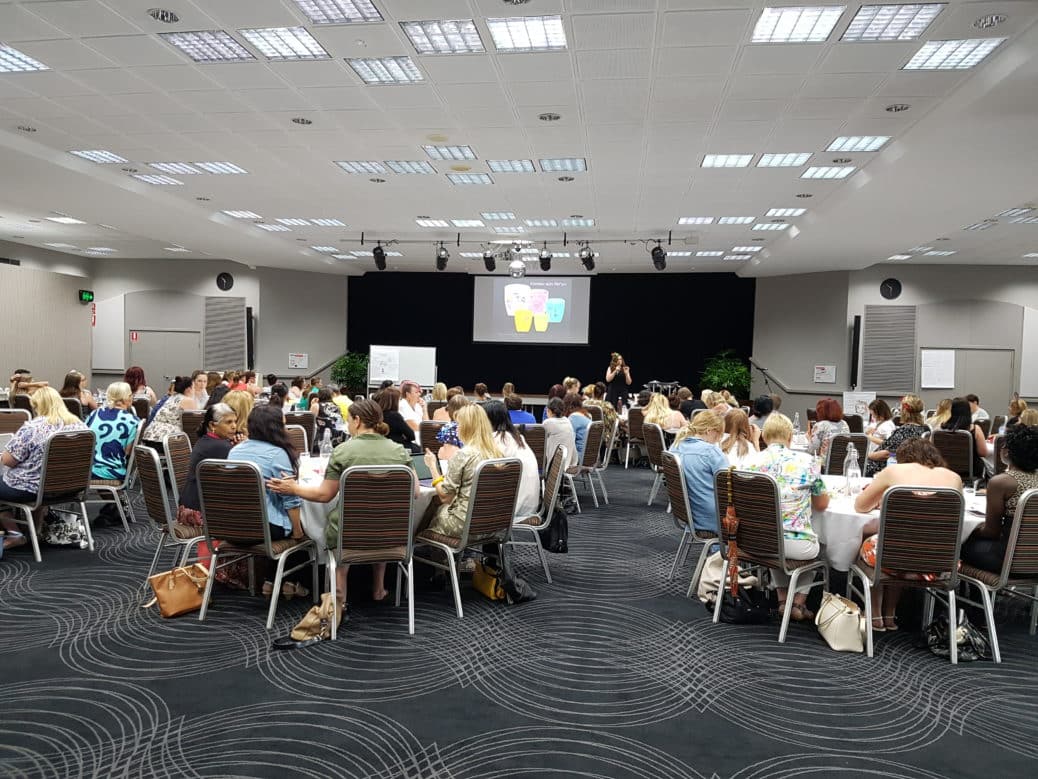
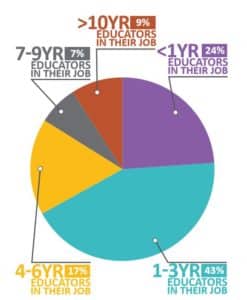
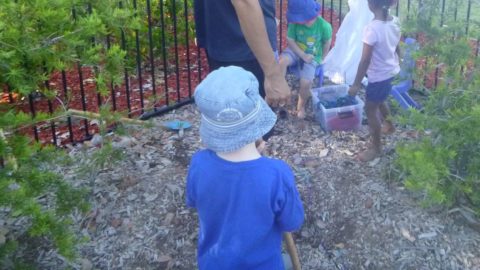
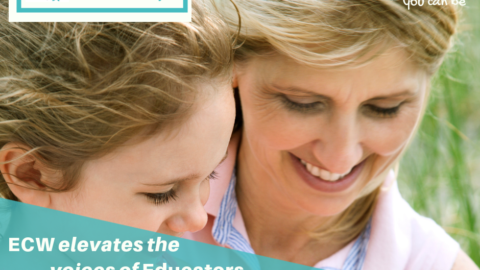
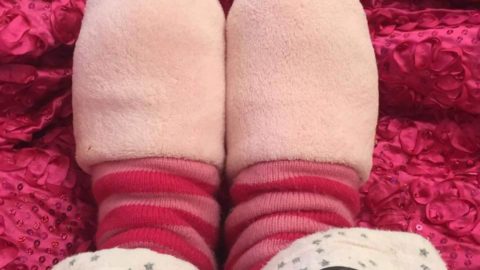

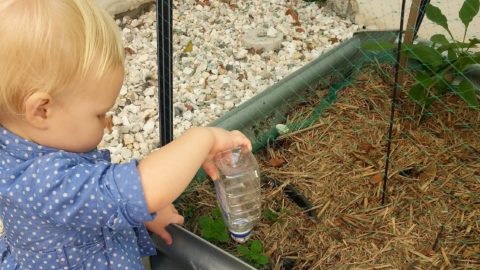


[…] children, to develop secure trusting relationships with a significant practitioner and to achieve quality outcomes for children than it currently is, in an environment that already loses on average 180 EC practitioners every […]